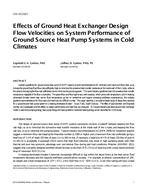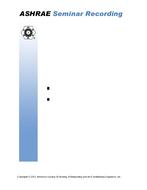Refrigeration’s largest overall application is the prevention or retardation of microbial, physiological, and chemical changes in foods. Even at temperatures near the freezing point, foods may deteriorate through growth of microorganisms, changes caused by enzymes, or chemical reactions. Holding foods at low temperatures merely reduces the rate at which these changes take place. A few spoilage organisms can grow at or below temperatures at which food begins to freeze, but their growth rate is greatly reduced below that at ambient temperatures. Refrigeration also plays a major role in maintaining a safe food supply. Overall, the leading factor causing foodborne illness is improper food-holding temperatures. Another important factor is improperly sanitized equipment. Engineering directly affects the safety and stability of the food supply in design of cleanable equipment and facilities, as well as maintenance of environmental conditions that inhibit microbial growth. This chapter briefly discusses the microbiology of foods and the effect of design decisions on the production of safe and wholesome foods. Methods of applying refrigeration to specific foods are discussed in Chapters 30 to 42.
Basic Microbiology
Critical Microbial Growth Requirements
Design for Control of Microorganisms
Role of HACCP
Sanitation
Regulations and Standards
ISBN: 978-1-939200-97-6 (for I-P versions of chapters)
ISSN: 1930-7195 (for I-P versions of chapters)
Citation: 2018 ASHRAE Handbook–Refrigeration
Product Details
- Published:
- 2018
- ISBN(s):
- 9781939200976
- Number of Pages:
- 5
- Units of Measure:
- I-P
- File Size:
- 1 file , 220 KB
- Product Code(s):
- D-R222018IP


